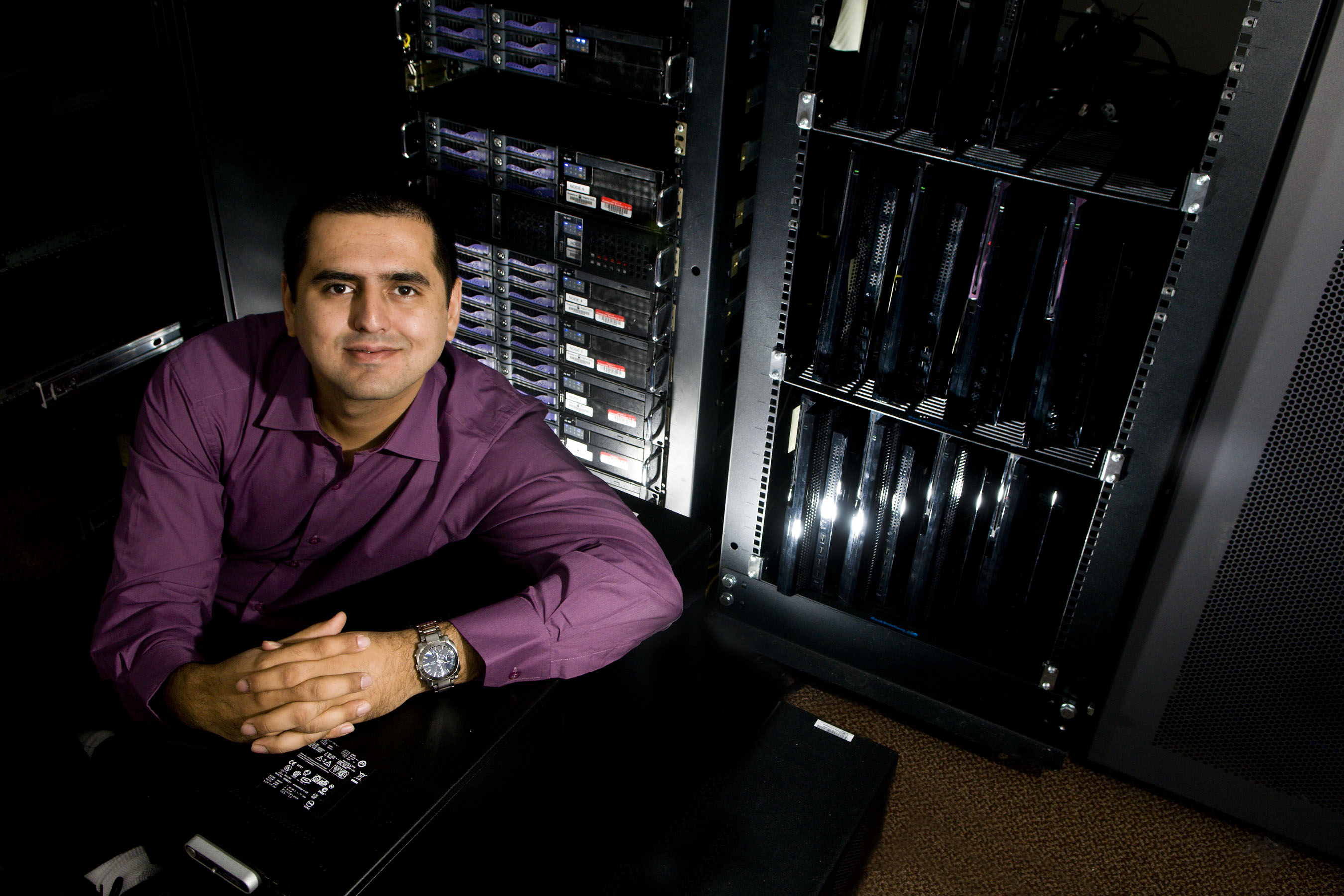Computer science researcher hopes to make access to cloud storage more efficient

With the advent of cloud computing, users worldwide are provided huge data storage that can be accessed and shared from anywhere using laptops, smart phones, tablets, and other devices. Such global data access and sharing allows greatly-accelerated progress in scientific and technological achievements, not to mention innovative social media uses.
However, with the data available worldwide, challenges remain in the ability to handle the volume of users attempting to access information simultaneously, as well as in the capability of a data center to respond to the varying request times that might limit performance.
To help manage this storage of data in an efficient manner, Ali R. Butt, associate professor of computer science at Virginia Tech, has received a NetApp Faculty Fellowship.
NetApp, a Fortune 500 company, develops software, systems, and services to manage and store data.
The storage of shared data via cloud computing is relatively new, although the original concept dates back to the 1950s when large-scale mainframe computers became more available. In the past few years, major companies, including Microsoft Corp., Rackspace Hosting, IBM, and Amazon.com Inc. have announced initiatives in cloud computing.
However, distortions may still affect the retrieval of information. Butt's plan to address this difficulty that often comes with a high volume of requests as well as performance problems from varying request patterns is to further develop Mizan, a high-performance and load balanced in-memory object caching storage system. In computing, a cache is a component that stores data in memory so that future requests for that data can be served faster from the memory instead of retrieving it from a slower device such as a disk.
"The goal is to make the load-balancer track hotspots and apply appropriate strategies," Butt explained. This tracking might reveal key repetitious inquiries or provide a better idea of where data is migrating. With this information, "we may be able to dynamically mitigate imbalances, while supporting high-performance and efficient use of resources."
Butt already knows that Mizan can quickly detect hotspots in workloads, and is able to lessen any load imbalance that is critical in cloud computing.
The computer scientist plans to use the Amazon EC2-based cloud cluster to conduct his experiments.
"The choice of this design will allow Mizan to scale-up to a large number of cache nodes and scale up its performance by fully exploiting the parallelism offered by emerging massively multi-core computer architectures," Butt said.
Butt is a previous recipient of a National Science Foundation CAREER award for his research in high performance computing power.
The NetApp Faculty Fellowship program was established to encourage leading-edge research in storage and data management and to foster relationships between academic researchers and engineers and researchers at NetApp. NetApp selects recipients of its awards who have demonstrated they are working on research that is likely to make significant and relevant contributions to the greater body of work and to the storage and data management industry.




